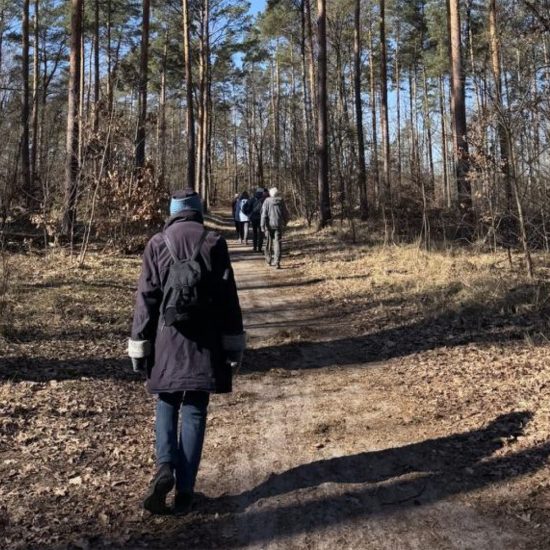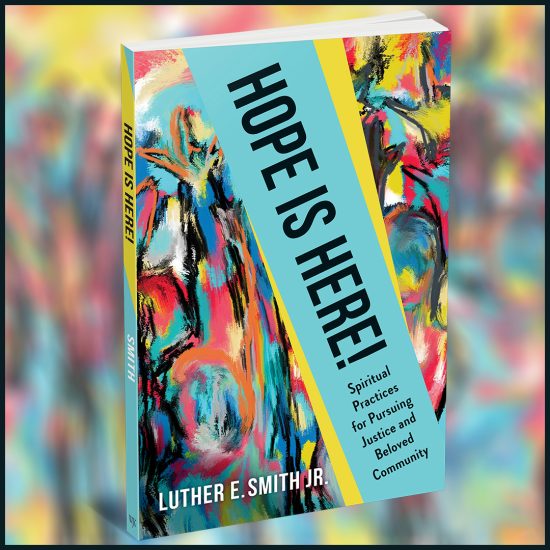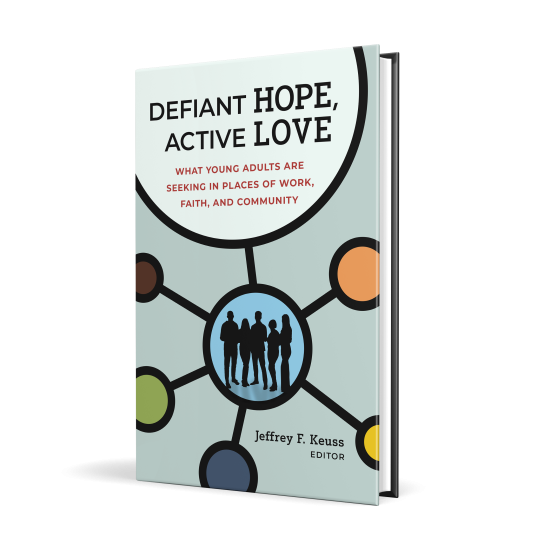

COMMUNITY. By Henri Nouwen. Edited by Stephen Lazarus. Foreword by Robert Ellsberg. Maryknoll, NY: Orbis Books, 2023. Xviii + 142 pages.
Many clergy of my generation looked to Henri Nouwen as a constant companion, whose books and devotions provided encouragement and strength for the journey. We looked to him for guidance on sermon topics and simply understanding what it means to be a member of the clergy. One book in particular, The Wounded Healer: Ministry in Contemporary Society, which came out right when I was finishing college, served as my first introduction to Nouwen. I would later have the opportunity to hear him speak and of course, I’ve been reading his works ever since my discovery. His books and messages served to remind us that those of us called to pastoral ministry are not perfect and that often we will minister in and through our wounds. It’s a lesson that needs to be relearned regularly. What most of us didn’t know was that Nouwen himself struggled with the same kinds of issues that have faced the rest of us. In other words, he was a fellow traveler who struggled with things like jealousy and even arrogance. Perhaps that’s why he left the academic world to serve as a chaplain, working with severely mentally challenged individuals, people who didn’t know how respected a teacher and writer he was.

Robert D. Cornwall
Nouwen passed away in 1996, nearly forty years ago. Nevertheless, his books and writings continue to speak to new generations of clergy and spiritual seekers. When a new collection emerges, it’s worth pausing to take note of the wisdom that Nouwen possessed and draw upon it.
This book under review is simply titled Community. Edited by Stephen Lazarus, this book draws together essays and speeches given over a lengthy period of time. Except for the first essay, which is titled “From Solitude to Community to Ministry,” an essay that sets up what follows, the remaining essays are presented in chronological order. As the title of the book suggests, the essays in this book speak of community. Robert Ellsberg, the publisher of Orbis Books, writes in his Foreword to the book that this book had its origins forty years earlier. He notes that Nouwen submitted three essays for consideration to be published in The Catholic Worker. Ellsberg admits that being young and naive, he found Nouwen’s essays to be rather abstract. He then asked Nouwen if he had anything else to submit. According to Ellsberg, Nouwen was somewhat taken aback by the request. In any case, one of those essays that Nouwen submitted so many years before is included in this collection. So, this book, titled Community, may have started life as a set of essays submitted to The Catholic Worker, we now have a collection of essays that speak to the nature of community in its various forms since Nouwen wrote several essays about this topic, essays that emerged out of his own life experiences searching to find community for himself.
What we find in Community includes both published and unpublished essays. Lazarus points out that these essays “provide a picture of why Henri thought community was such a necessary and integral part of the spiritual life in all its many dimensions” (p. xiii). As I noted earlier, the chapters are laid out chronologically, except for the first essay/chapter, which focuses on solitude, community, and ministry. That essay is based on a presentation given in 1993, three years before Nouwen’s death. He writes at the conclusion of the essay that “Our little lives are small, human lives. But in the eyes of the One who calls us the beloved, we are great—greater than the years we have. We will bear fruits, fruits that you and I will not see on this earth but in which we can trust” (p. 15). The remainder of the essays run from 1977 until close to his death in 1996. In all, there are ten essays. They speak of solitude, community, brokenness, communion with God and humanity, and finally conversion. Conversion, for Nouwen, involves the transformation of a heart of stone into a heart of flesh. With that in mind, the ten essays found here in Community, cover a variety of issues and concerns. As we read through the essays, we discover that as much as we need community, it can require solitude if we’re to truly experience community.
Considering there has been much discussion about the challenges of ministry, which is leading some to leave the ministry, Nouwen points to the proper order leading from solitude to community to ministry. He writes “So often in ministry, I have wanted to do it by myself. If it didn’t work, I went to others and said, ‘Please!’ searching for a community to help me. If that didn’t work, maybe I’d start praying.” He writes that the proper order starts with prayer and moves through community to ministry. But too often we start the other way around, to our deficit. He does believe that taken together these three disciplines create space for God. If that is true, then God can act and speak. (p. 3).
The essays begin, after the opening essay, with an earlier essay on “Spiritual Formation and Community,” from 1977. We move from there through discussions of solitude, the faces of community, “Called from Darkness,” “The Broken World, the Broken Self, and Community,” “Holding Ground,” “From Communion to Community,” and “A Spirituality of Community.” The final essay is titled “From a Heart of Stone to a Heart of Flesh: Conversion and Community.” This final essay was written in 1995, a year before his death. It was delivered this message at a retreat for a gathering of L’Arche assistants in Stratford, Ontario. He shared with his colleagues that conversion is not a one-time event, but an ongoing transformation of the heart from stone to flesh. This involves three disciplines that include attentiveness to God, to the moment, and the poor.
For those who struggle to experience true community, and I expect that includes all of us, in these essays included in this collection under the title of Community, Nouwen, who had his own struggles with community, provides us with helpful guidance. Nouwen doesn’t offer us three easy steps to community. It requires a lot of us, especially letting go of status, which is something he had to do as he moved from his academic post to service at L’Arche. He also speaks of elements of the Christian life that I find challenging, including solitude and silence. As for being contemplative, that is not something I have found to be part of my practice. Nevertheless, the encouragement to find ways of connecting with God and neighbor is valuable. The honesty with which he writes makes this a book all of us should read as we seek to find community in a broken world.
This review originally appeared on BobCornwall.com.
Robert D. Cornwall is an ordained minister in the Christian Church (Disciples of Christ). Now retired from his ministry at Central Woodward Christian Church (Disciples of Christ) of Troy, Michigan, he serves as Minister-at-Large in Troy. He holds a Ph.D. in Historical Theology from Fuller Theological Seminary and is the author of numerous books including his latest “Second Thoughts about the Second Coming: Understanding the End Times, Our Future, and Christian Hope” coauthored with Ronald J. Allen. His blog Ponderings on a Faith Journey can be found at www.bobcornwall.com.






